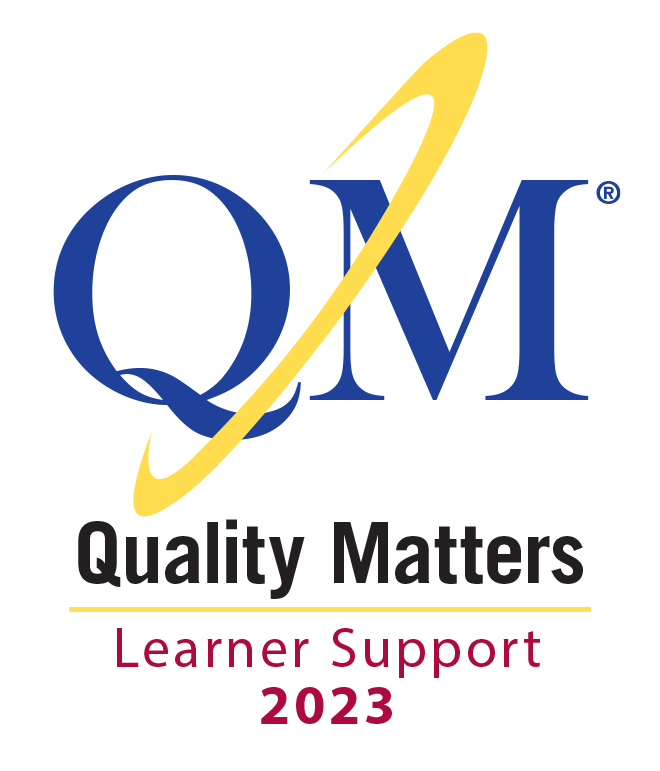Questions? Request Information
Degree Completion Journey
The PhD program in Organizational Development and Leadership includes 10 core courses, plus one elective research course, six specialization courses, and a capstone seminar. Your coursework includes discovery and applications in areas such as performance management, organizational change, employee motivation, executive coaching, ethics, and more, and leads up to your doctoral dissertation, which includes two dissertation planning courses as well as a minimum of five units of dissertation coursework. All your organizational development and leadership courses are instructed by experienced faculty members who have earned doctoral degrees themselves. Their experience in the field allows them to develop and deliver a high-quality online education to you.
To be awarded the PhD in Organizational Development and Leadership at UAGC, you must complete the program coursework of 62 credits with a 3.0 minimum cumulative grade point average. You will need to complete three non-credit In-Residence Workshops. You will also need to complete all dissertation requirements.*
*As a requirement for graduation from the University of Arizona Global Campus with a degree of Doctor of Philosophy (PhD), each student must complete and successfully defend a dissertation. The purpose of the dissertation is to ensure that the student has mastered the ability to pursue a systematic investigation that examines significant issues or problems. The dissertation requirement is also designed to contribute to the student’s knowledge, skills, and research expertise. Students choose a topic that addresses carefully chosen research questions that the student then investigates with quantitative or qualitative research or with a mixed methods research design. Prerequisites, timelines for completion, and attendance requirements for dissertation, as well as a detailed explanation of each step in the process, are described in the Dissertation Handbook.
This program is not designed to meet the state educational requirements for a specific professional license or certification in any state. Students seeking licensure or certification in a particular profession shall carefully research the requirements prior to enrollment and regularly review the requirements as they are subject to change. Requirements vary by state. The University of Arizona Global Campus does not guarantee that any professional organization will accept a graduate’s application to sit for any exam for the purpose of professional certification. Further, a criminal record may prevent an applicant from obtaining licensure, certification, or employment in their field of study.
Certain degree programs may not be available in all states.
The Online Teaching Support Certification recognizes programs that require all online faculty to undergo training in best practices for online course delivery, provide faculty with ongoing pedagogical support, encourage faculty professional development to increase their knowledge and skill in online teaching, emphasize instructor availability and feedback to learners, and collect and use feedback from learners to improve online teaching. Learn More

The Online Learner Support Certification recognizes programs that provide all the critical student and academic services needed for learner success and use learner feedback to continuously improve those services.

Customize Your Organizational Development and Leadership Degree with a UAGC Specialization
Personalize your PhD in Organizational Development and Leadership with a Standard Organizational Development and Leadership Doctoral Specialization, which includes 6 courses and consists of 18 credits.
-
Step into the role of leader with the Doctor of Philosophy in Organizational Development and Leadership, Standard Program of Study from the University of Arizona Global Campus. In this program, you will learn how to rely on research and evidence to anticipate the impact of strategic initiatives and organizational change. Develop the skills to be a problem-solver at any business or organization. Your specialization may require prerequisite course work. Please talk to your advisor for more information.
Careers Related to Philosophy in Organizational Development and Leadership


U.S. Department of Labor data regarding salary ranges and job growth projections are national in nature and do not guarantee employment, any specific salary, or job growth. Also, national long-term projections may not reflect local and/or short-term economic or job conditions. Top Skills are provided via Lightcast job postings data and may not align with UAGC program learning outcomes. UAGC programs are not designed to meet the state educational requirements for a specific professional license or certification in any state. UAGC does not guarantee employment placement, any specific salary from employment, or career advancement.
Meet Our Faculty
Other Degrees That May Interest You
Check out other degree programs that suit a variety of interests and may enhance a wide scope of career opportunities at UAGC. Discover similar programs to find the right path for you.






